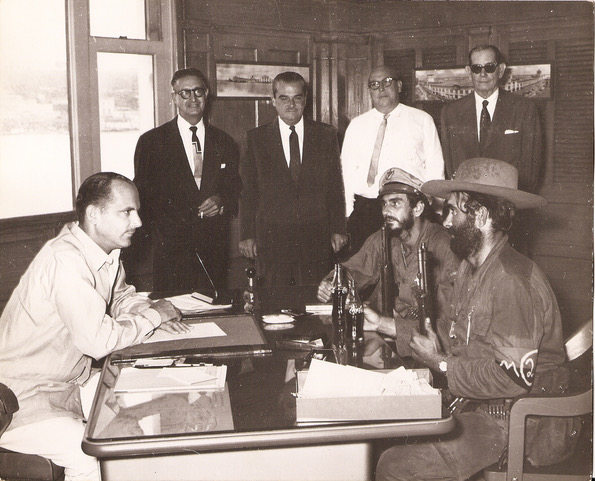Corruption in Cuba, a Multi-Tiered Problem
Osmel Ramirez Alvarez

HAVANA TIMES — We don’t really know the exact scale of the corruption in Cuba. Figures on corruption aren’t published and most cases punishable by law aren’t published by pro-government media. We only know about the ones which are in the government’s political or strategic interest, which circulate on cell phones or by well-known “gossip”.
Nevertheless, we can deduce how deeply this evil has rooted itself in our country. If a leader or official earns less than 1500 Cuban pesos (60 CUC) and doesn’t have any other source of income, how can they keep up a lifestyle as if they were earning 500 or 1000 CUC?; how do female leaders and workers’ pay for their beauty treatments if they cost more per month than their wages?
It’s incredible but true. Very few wages can afford to buy the most regular pair of shoes. Technically-speaking, if someone who works for the State is dressing well and wearing decent shoes, and is eating after the 10th of the month, then they are involved in crime or receives family remittances from abroad.
There are more “big shots” in the capital than in the provinces which is why we can see more corruption and there are more stories about the bourgeois lifestyle of Party leaders and their offspring. Employees at good restaurants and hotels witness their large expenses (as a family or with friends a lot of the time) billed to the State or with their wads of hard currency and they talk about it on the street. We also know about private businesses and their successful ventures who are immune to being harassed by inspectors and government officials of course, who normally suck the rest dry or stop them in their tracks.
On the other hand, the vast majority of Cuban workers (maybe 99.9%) steal something from their workplace to make up their wages, which isn’t enough even in the best of cases. When there isn’t anything tangible and valuable to take, then time is stolen and that time is used to resolve something that money can’t, like in an alternative business for example. And to top off the list, there’s also “favoritism” and influence peddling, which come in the form of benefits.
The Cuban system is dysfunctional and that’s why it survives on the foundations of illegal activity and corruption. Marxism-Leninism is the official ideology, but it’s really “hypocrisy”. The need to steal and be corrupt was made evident with Fidel’s idea (when he completely failed to recognize the country’s reality) of placing “Party duos” to check and watch over how things are run. It was chaos: nothing worked, people suffered great shortages and the country came to a standstill. A few months later, they had to remove them and they have never done this again.
For this political, economic and social anomaly to work, at least basically, we have to let managers live off of influence peddling because otherwise, nobody would be a manager because the wages aren’t encouraging. And if workers can’t “struggle”, nobody would work at state-run companies. When you’re offered a job, people don’t ask how much you earn but how much can you “struggle” there?
The private sector isn’t exempt from these structural atrocities. It is being reborn with many legal and bureaucratic struggles, like a necessary evil with regulations so it can’t grow. You have to be involved in crime just to work a little bit even. And in order to grow and become a thriving business: it’s legally impossible! (even though it seems legal from afar).

The vast majority of private, large and small businesses commit illegal activities in order to operate and the same thing happens in state-controlled companies. Not to mention corruption which rears its ugly head and seduces when these practices become commonplace.
For example: every private pizza place in Cuba and sweet and cake maker works using flour stolen from warehouses and bakeries: they don’t have any other stable or viable supplier because of prices. And every private transport vehicle, “almendrones” (the old US cars) taxis and trucks, run using stolen diesel: because buying it legally would double the price, which is already high as it is. And this happens in every business.
The government knows what’s really going on but it also knows that the solution will most certainly lead to dangerous decisions about their own power, which is just as illegitimate. That’s why they live with corruption while things appear to be working, but as soon as they want to get rid of a bothersome leader, they pull out his file with these alleged faults, which are the barbaric things he had to do in order to work or the little bit extra they skivvied which they had always tolerated in the past. And they bury them!
And when they want to screw over a private business owner, someone who is becoming more powerful, too rich for their taste, after having lived with him for years and using him in their production or income plans, they destroy him without any problem. It’s so easy to prove illegal activities and bad practices when they feel like opening their eyes. There’s no escape.
In short, there isn’t any real or serious law against corruption because that would be detrimental to the system itself, which has to work hand-in-hand with it. What might seem like a new anti-corruption law is just a few selective blows to prevent private wealth accumulation or to recycle bothersome Party members. If only I were wrong…






